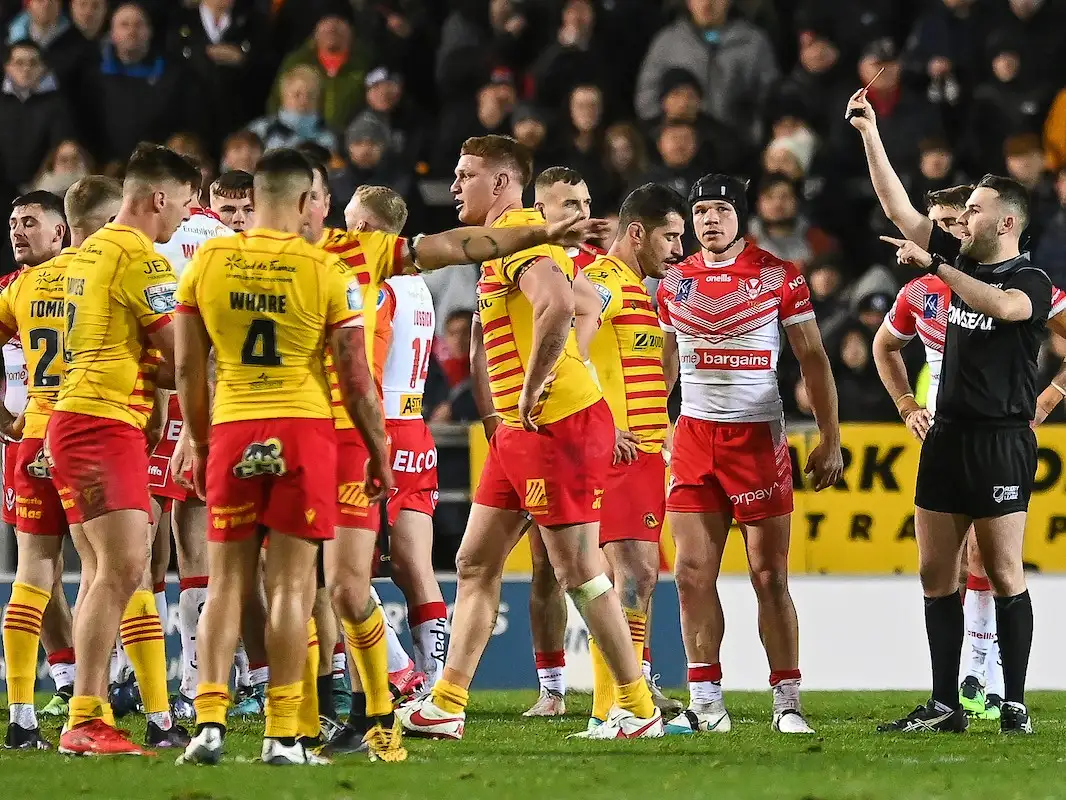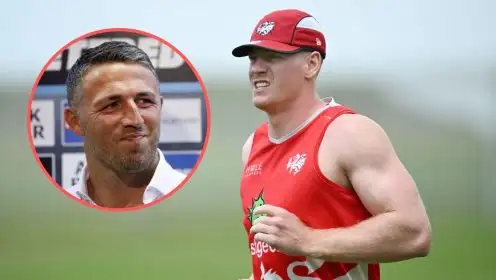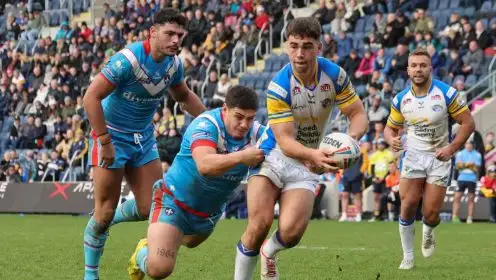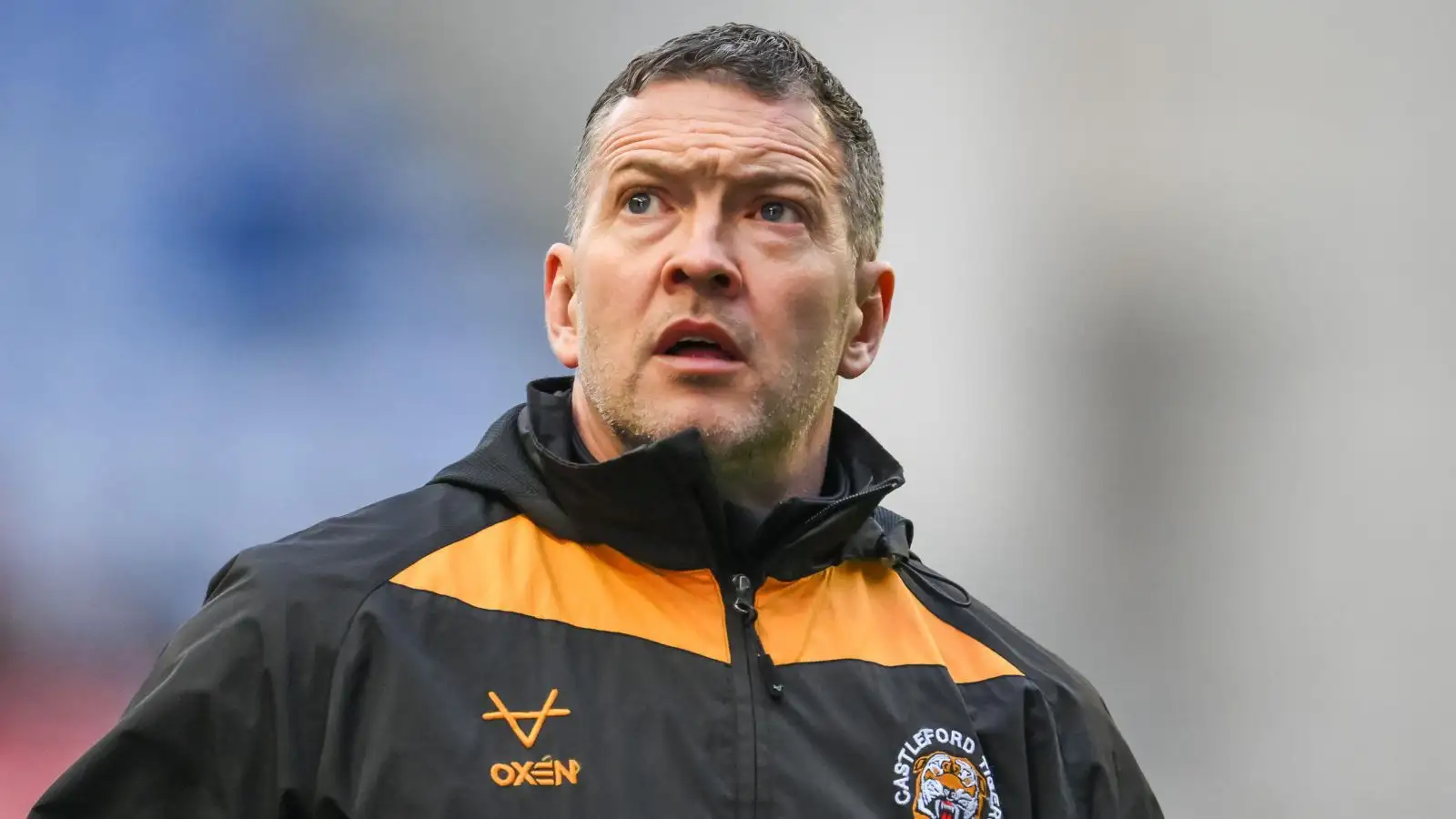RFL provide clarity on high tackle punishments

Photo by Craig Thomas/News Images
The RFL’s chief on-field officer Dave Rotheram has provided some clarity to the punishments surrounding the high tackle at the start of the new season.
In a column on the RFL website, Rotherham said that there has been no specific directive to clamp down on any aspect.
12 players were charged with offences following the first round of Super League fixtures.
That included bans for Dylan Napa (four), James Bentley (four) and Jake Connor (one) after all received red cards.
A further 21 charges were issued following the Championship and Challenge Cup games on the same weekend.
LATEST: Pauli Pauli receives second ban with York & David Foggin-Johnston referred to tribunal
More than half of the charges were for high tackles or dangerous contact, not including charges for striking or punching.
It has been a big talking point amongst coaches and players all week.
Explaining the high tackle punishments
As per the RFL’s official website, the simple summary is as follows:
- A careless high tackle would start at Grade A, and should lead to at least a penalty;
- A reckless high tackle would start at Grade B, and should lead to at least a sin-binning as well as a penalty;
- An intentional high tackle would start at Grade C, and should lead to dismissal.
- Force is then taken into account, so a reckless high tackle which is also forceful would be upgraded to the next level of sanction.
- Direct shoulder contact with the head should lead to a dismissal where the shoulder is the first and only part of contact.
- Finally, video referees are to intervene only when an offence merits a sin-binning or a dismissal.
The RFL are due to bring back the ‘Sin Bin’, where they explain more on and off-field decisions in a monthly programme.
Rotheram said: “One of the most refreshing aspects of the opening round of Betfred Super League fixtures was the lack of incidents of late hits on passers or kickers which were deemed to require charges or further action by the MRP.
“I sent a note to Super League coaches earlier this week congratulating them for that; and thanking them for a number of supportive comments in the media, which make such a difference as we all work towards increased awareness and acceptance of the sport’s Enjoy the Game campaign.
“I sense a mood of change around the majority of the game; more appreciative, supportive and understanding of the efforts of our match officials, who have also played their part in such a successful start to the season.”
LISTEN: Physical rugby becoming more of a risk in ever-changing face of rugby league, says Amor



